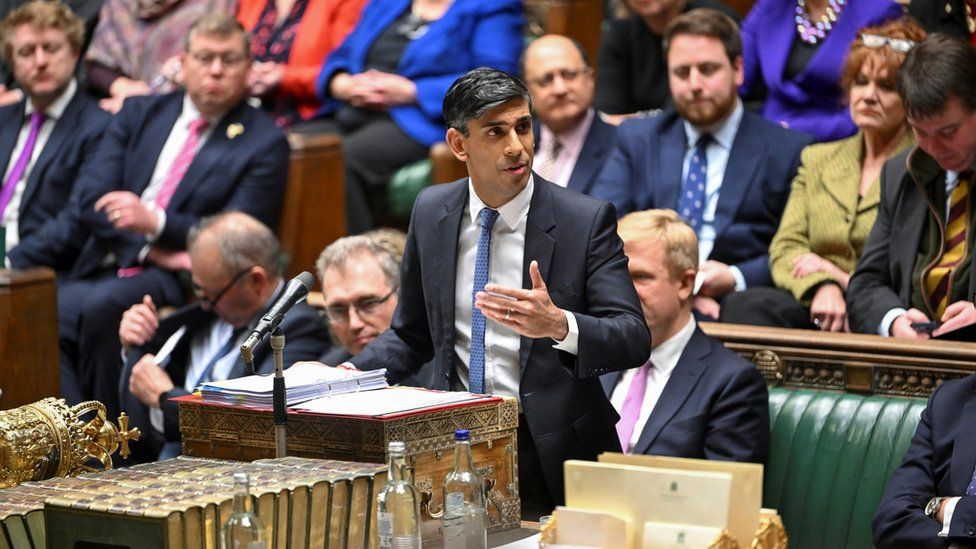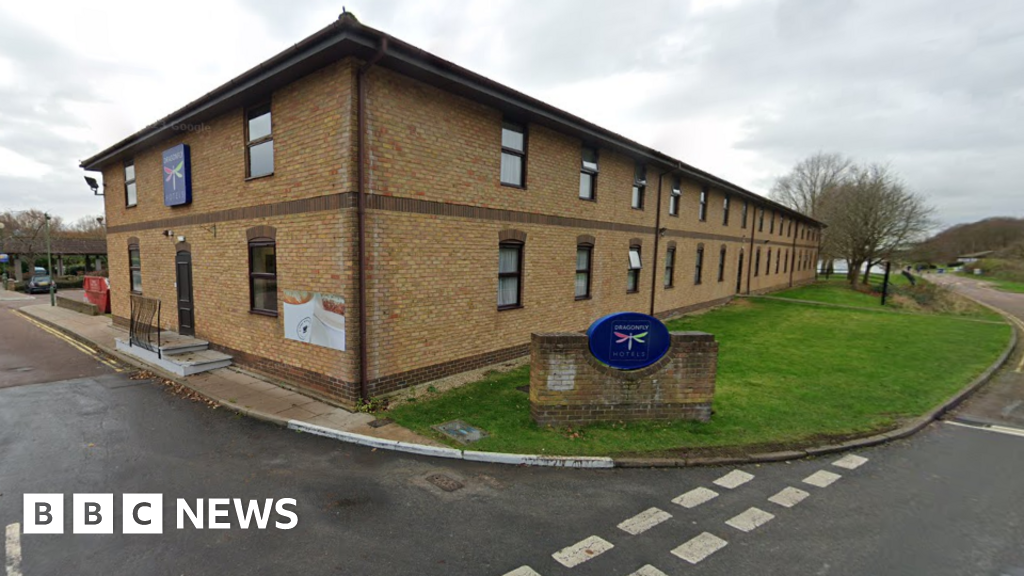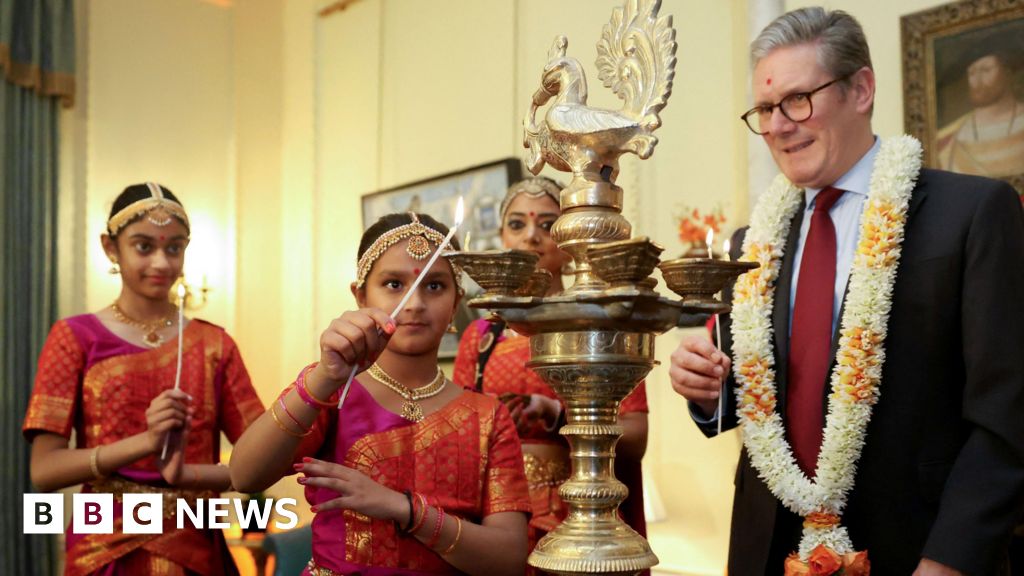ARTICLE AD BOX
 Image source, UK Parliament
Image source, UK Parliament
By Chas Geiger
Political reporter
Powerful groups of Conservative MPs are currently studying the small print of Rishi Sunak's Rwanda legislation to decide whether to back it or not.
But who are these factions? And why do they have so much influence?
All political parties have factions - like-minded MPs who get together to campaign on issues they care about.
Their membership tends to be loose and sometimes overlaps. They don't all vote the same way, although in some cases they have been remarkably disciplined.
The prime minister needs the backing of nearly all of his MPs to stand a chance of getting his plan to send asylum seekers to Rwanda for processing and resettlement into law.
The verdict of these groups will be crucial.
One Nation caucus
Image source, BBC
Image caption,One Nation Conservatives chair Damian Green
The largest single group within the parliamentary party says more than 100 Conservative MPs are members, almost a third of the total.
The phrase, "one-nation Tory", goes back to 19th-century Prime Minister Benjamin Disraeli, but the caucus was formed only in 2019.
Chaired by former First Secretary of State Damian Green, it says it is "committed to the values of the liberal centre right".
Many of its members represent traditionally Tory "blue wall" seats where the Liberal Democrats are the main challengers.
Some are known to be unhappy that Mr Sunak's new Rwanda bill sets aside some of the UK's obligations in international law.
Former Solicitor General Lord Garnier, who is advising the caucus, has described the bill as political and legal "nonsense", equivalent to ruling "all dogs are cats".
Other leading lights include Education Secretary Gillian Keegan, Security Minister Tom Tugendhat and Caroline Nokes, who chairs the women and equalities committee.
European Research Group
Image source, Getty Images
Image caption,Veteran Eurosceptic Sir Bill Cash
Once the most powerful grouping of Tory MPs, the ERG played a key role in blocking Theresa May's Brexit deal and then bringing her down as prime minister, which paved the way for successor Boris Johnson to strike a harder Brexit.
It does not publish information about its membership, but this is currently thought to be in the 30s, significantly down on its Brexit heyday.
However, the ERG has often punched above its weight, and numerous leading lights have gone on to bigger things - including Sir Jacob Rees-Mogg and Suella Braverman. New illegal migration minister Michael Tomlinson was deputy chair of the group from 2016-2018.
It has been pressing for a hardline approach on the illegal migration issue and its so-called "star chamber" - a group of lawyers chaired by veteran Eurosceptic Sir Bill Cash - is analysing the Rwanda legislation to decide whether it is "fit for purpose".
ERG chairman Mark Francois said Sir Bill was confident the findings would be available in time for the key Commons debate on the bill next Tuesday.
New Conservatives
Image source, Getty Images
Image caption,New Conservatives co-chair Miriam Cates
Formed only in May 2023, the New Conservatives have fast become one of the most vocal factions within the party.
Around 30 MPs are members, including deputy Tory chairman Lee Anderson, and group co-chairs Miriam Cates and Danny Kruger.
Most were elected in 2019, many in marginal, traditionally Labour, "red wall" seats in the north of England and the Midlands.
The New Conservatives have called for radical measures to cut migration and pressed the government to deliver deportations to Rwanda by "unpicking" many of the UK's international obligations.
They have also said they will take account of the ERG's star chamber findings.
On broader policy, the group says the party needs to return its 2019 manifesto by delivering levelling up and reducing taxes, rein back on green measures, and ban "gender ideology" in schools.
Common Sense Group
Image source, Reuters
Image caption,Sir John Hayes is a close ally of Suella Braverman
Launched in 2020 and with around 30 members, the CSG is led by former Home Office minister Sir John Hayes, a close ally of Suella Braverman.
Like her, he has been fiercely critical of Mr Sunak's Rwanda approach and, alongside the New Conservatives, the group has been pressing for tougher action on both illegal and legal migration.
It has also pushed hard on culture issues, such as Mr Sunak's plans to phase out smoking, other manifestations of what it regards as "the nanny state", and what it described as the National Trust's "woke agenda" on colonialism.
Other leading figures include Lee Anderson, Brendan Clarke-Smith and Jonathan Gullis.
Northern Research Group
Thought to number more than 50 MPs, the group was formed in 2019 to press for greater investment in "red wall" areas in the north of England, Wales and the Scottish borders.
Senior figures include former party chairman and Northern Powerhouse minister Jake Berry, former Brexit Secretary David Davis, and Esther McVey, who returned to the cabinet last month.
The NRG regards immigration as an important issue for many of its MPs' voters.
Chair John Stevenson, MP for Carlisle, said he believed the bill would be "overwhelmingly supported by northern MPs" and he would be "surprised if anybody went against it".
Image source, PA Media
Image caption,Former prime minister Liz Truss addressed a packed fringed event at the Conservative Party conference in October
Conservative Growth Group
Around 50 MPs are thought to be members of a group set up in the aftermath of Liz Truss's disastrous, short tenure at No 10.
Its focus is chiefly economic: it advocates the libertarian policies it believes Ms Truss was prevented from introducing by the unravelling of her mini-budget in September-October 2022.
It says the policies needed to break out of a long period of low growth include slashing business taxes and stamp duty, toughening benefit requirements, relaxing planning, and reintroducing fracking.
Prominent figures include former Home Secretary Priti Patel and former Levelling-Up Secretary Sir Simon Clarke.
Other groups
These include No Turning Back - formed as far back as 1985 - to promote Margaret Thatcher's policies.
Since 2005, it has been chaired by Sir John Redwood, who has campaigned for the UK to withdraw from the European Convention on Human Rights to ensure the Rwanda plan can go ahead without further legal delays.
The Conservative Democratic Organisation, launched a year ago, was widely thought to be front for an effort to restore Boris Johnson to Downing Street. It has denied this.
It calls for greater party democracy and condemned Mr Sunak's "coronation" as prime minister without a Tory members' vote. It has also described his sacking of Ms Braverman as "political suicide".
Priti Patel, Nadine Dorries, who is no longer an MP, and Sir Jacob Rees-Mogg are prominent. supporters.

 11 months ago
26
11 months ago
26








 English (US)
English (US)